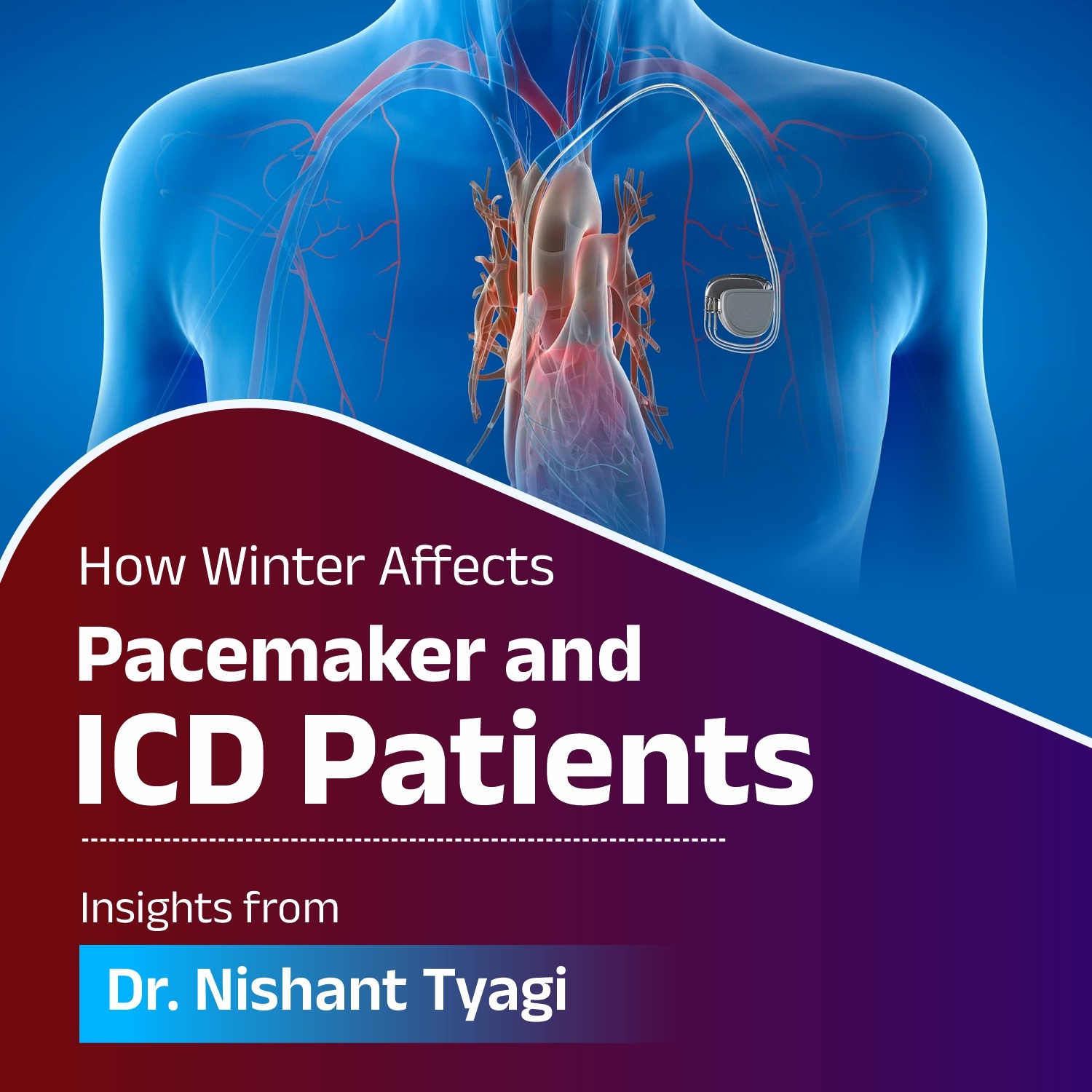- [email protected]
- Max Super Speciality Hospital, Delhi

As winter sets in, patients with pacemakers and implantable cardioverter defibrillators (ICDs) may face unique challenges. Understanding how cold weather impacts heart health and device function is crucial for maintaining well-being during this season. Dr. Nishant Tyagi, the best cardiologist in Max Patparganj, Max Hospital, provides expert insights to help patients navigate these concerns effectively.
Pacemakers and ICDs are life-saving devices designed to regulate heart rhythms. While pacemakers assist in maintaining a steady heartbeat, ICDs monitor and correct irregular rhythms, often preventing sudden cardiac arrest. These devices are sensitive to both internal body signals and external environmental changes, including those brought on by winter.
Cold weather poses physiological stress that can directly or indirectly affect pacemaker and ICD patients:
Although pacemakers and ICDs are highly durable, extreme cold can potentially impact their performance:
Here are some specific winter-related risks to watch out for:
To ensure a safe winter, follow these expert recommendations:
Pay attention to any changes in symptoms, such as dizziness, fatigue, or irregular heartbeats, and report them promptly to your cardiologist.
Winter is a great time to schedule a check-up with your cardiologist to ensure your device is functioning correctly. Dr. Nishant Tyagi, a leading expert at Max Hospital, provides comprehensive device evaluations.
Cold weather can strain the heart. Avoid shovelling snow or engaging in intense physical activities without warming up adequately.
Engage in light indoor exercises to maintain cardiovascular health while minimizing exposure to cold.
Eating heart-healthy foods can make a significant difference:
Dr. Nishant Tyagi, renowned as the best cardiologist in Max Patparganj, provides personalized care for pacemaker and ICD patients. With advanced diagnostic tools and tailored treatment plans, he ensures that each patient can manage winter’s challenges effectively. Patients at Max Hospital benefit from comprehensive device monitoring, lifestyle recommendations, and expert advice.
Cold temperatures can potentially impact battery life and increase physical discomfort around the implant site. Regular check-ups help ensure optimal performance.
Electrically heated clothing may interfere with device function. Consult your cardiologist before using such items.
Shoveling snow can strain the heart. It's best to avoid overexertion and take frequent breaks if necessary.
Yes, dehydration can indirectly affect cardiovascular health, which may impact your device’s effectiveness.
High altitudes can strain the heart. Consult your cardiologist before traveling to such destinations.
Report these symptoms immediately to your cardiologist, as they may indicate an issue with your device or heart health.
Conclusion: Winter can present unique challenges for pacemaker and ICD patients, but with the right precautions, you can maintain your health and safety. By staying warm, monitoring symptoms, and scheduling regular check-ups with experts like Dr. Nishant Tyagi at Max Hospital, you can navigate the season confidently.

